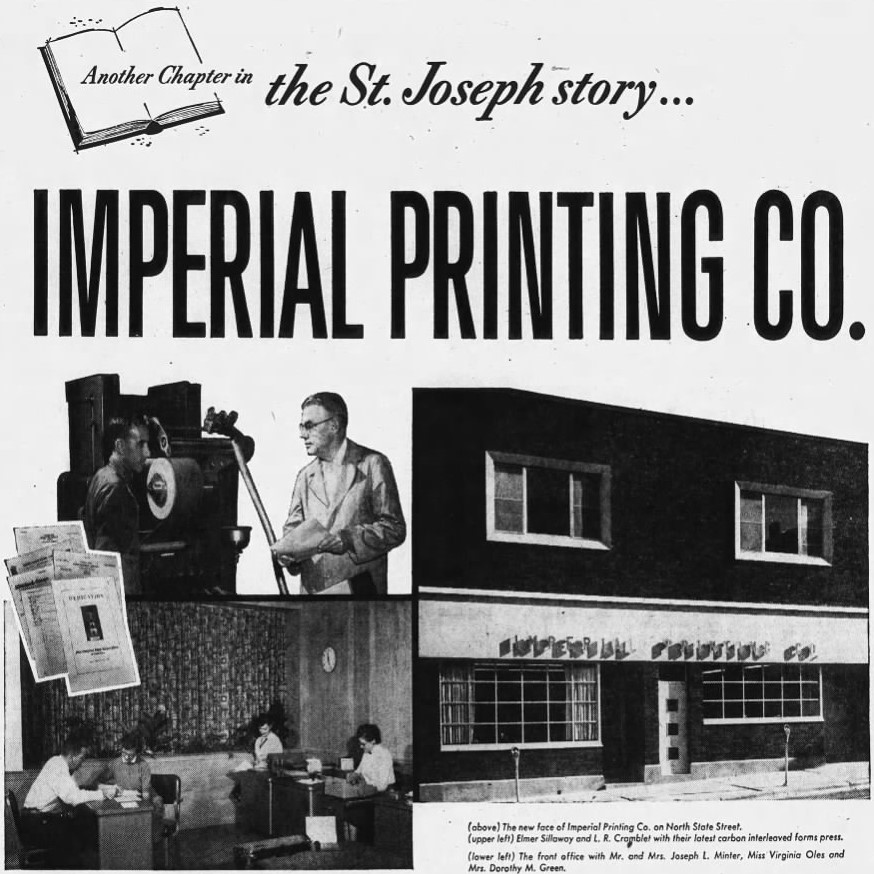

Magazines have been a part of American culture for as long as anyone can remember. Whether they’re sitting on a coffee table or in a doctor’s office, these publications represent hundreds of hours of work among countless writers, photographers, editors, designers and printers. But how did magazines get their start in the United States? This article will discuss the history of American magazines and highlight some of the most influential magazines throughout our country’s history.
The Early Days: 18th and Early 19th Centuries
The very first American magazine was published on Feb. 13, 1741, by Andrew Bradford, and was titled American Magazine, or Monthly View of the Political State of the British Colonies. Exactly three days later, the second American magazine was published by one of the founding fathers, Benjamin Franklin. Unfortunately, both magazines were short-lived; Bradford’s publication ended after just three months, and Franklin’s, titled The General Magazine, and Historical Chronicle for all the British Plantations in America only lasted six.
During this initial era, it was difficult for magazines to attract and retain readership, mainly due to the difficulties of mass production and distribution. However, thanks to the industrial revolution in the early 19th century magazines became more accessible than ever and publications began to gain momentum.
Godey’s Lady’s Book
Launched in 1830, Godey’s Lady’s Book was a widely popular women’s magazine that influenced fashion and domestic trends for several decades. It featured literature, fashion plates and articles, becoming a cultural touchstone for women in the 19th century.
Harper’s Weekly
Harper’s Weekly, founded in 1857, was a prominent American illustrated publication that played a crucial role in shaping public opinion during the Civil War era. Known for its political cartoons and coverage of social issues, it provided a snapshot of American life in the 19th century. The magazine went out of print in 1916, though its sister magazines, Harper’s Bazaar and Harper’s Magazine, are still being published today.
Finding its Footing: Late 19th Century Magazines
The late 19th century brought the emergence of several immensely popular magazines, some of which are still in publication to this day. These magazines started to shift towards targeted audiences, in contrast to the general interest and social commentary publications of the early to mid-1800s.
Thanks to the Postal Act of 1879, which significantly lowered postage rates for magazines, magazine readership soared at the end of the 19th century, and the total number of magazines in print in the United States spiked from around 1,200 in 1870 to 4,500 in 1890.
During this time, the influence magazines held over American culture grew, as did their potential as an advertising platform.
National Geographic
National Geographic, founded in 1888, is a renowned magazine dedicated to geography, science and culture. During the initial era, National Geographic was a scholarly, text-oriented journal. The magazine, now famed for its stunning photography and in-depth articles, has become a global authority on exploration and discovery.
Vogue
Vogue, founded in 1892, is an iconic fashion and lifestyle magazine identifying and setting trends for over a century. With a focus on high fashion, beauty and culture, Vogue has played a significant role in shaping global fashion trends. Vogue started as a weekly journal but transitioned to a monthly women’s magazine in the early 1900s.
Field & Stream
Founded in 1895, Field & Stream is a magazine dedicated to outdoor activities, particularly hunting and fishing. It has provided enthusiasts with expert advice, gear reviews and stories of adventure, making it a staple for outdoor enthusiasts.
The Golden Age: 20th Century Magazines
With the turn of the century, the country saw the inception of several important and immensely popular magazines. When added to the growing list of American publications, they helped solidify magazines’ place in American culture. More than ever, magazines were becoming a source of entertainment for average people, due in part to steadily increasing literacy rates.
Better Homes and Gardens
Better Homes and Gardens Magazine, founded in 1922 as Fruit, Garden and Home, has established itself as a popular lifestyle publication. Renowned for its focus on home and family, the magazine offers a diverse range of content, including home improvement tips, gardening advice, recipes and creative DIY projects.
Time
Founded in 1923, Time Magazine has been a major player in American journalism, providing in-depth coverage of world events, politics, and culture. The weekly publication is renowned for its impactful covers and influential Person of the Year feature.
Life
Life was originally published in 1883 as a weekly entertainment magazine before being purchased in 1936 by Henry Luce, publisher of Time, and transitioning to a photographic news magazine. Life became a pioneering force in photojournalism, capturing the essence of major events and cultural phenomena for several decades. Its visual storytelling made it a cultural touchstone for generations.
City/Regional Magazines
The 20th century is also when the United States began to see city and regional magazines crop up. The content of these publications is themed around their respective areas and helps keep residents connected, while showcasing local merchants and restaurants – most of which are paid advertisers.
Baltimore
Baltimore was first published in 1907 and is the oldest continuously published city magazine in the United States. The magazine keeps residents informed about current events, local politics, food and drink, art, culture and more. Baltimore publishes monthly and also produces specific, supplemental editions like Baltimore Game Changers and Baltimore Weddings.
Honolulu
Honolulu was originally published as Paradise of the Pacific in 1888, though technically at the time it was not an American magazine. The publication changed its name to Honolulu in 1966, seven years after Hawaii officially became a U.S. state. Originally, the magazine was intended to help drive tourism to the Islands but shifted its focus in the 20th century to highlight dining, culture, entertainment and politics for Hawaii residents.
Post-World War II Era: Rise of Specialized Magazines
In the 1950s and 60s, popular magazines saw another shift towards more targeted audiences and subject matters, with the rise of special interest and niche magazines like Sports Illustrated, which centered around sports news and discussions, and Ebony, which became a voice for African American culture in the United States.
Mad Magazine
Founded in 1952, Mad Magazine revolutionized satire and humor in American pop culture. With its irreverent take on politics, entertainment and society, Mad became a cultural phenomenon, influencing generations of readers with its iconic parodies.
Sports Illustrated
Sports Illustrated, first published in 1954, has been a preeminent sports magazine, offering in-depth coverage of athletes, events, and sports culture. The magazine has been providing relevant commentary on the state of professional sports since its inception, featuring an annual “Sportsperson of the Year” award, as well as naming Muhammad Ali “Sportsman of the Century” in 1999.
Rolling Stone
Rolling Stone, founded in 1967, has been a trailblazer in music journalism and pop culture coverage. The magazine has featured iconic cover stories, interviews and reviews, solidifying its reputation as a cultural authority. Rolling Stone not only covered popular music and entertainment but also featured political coverage during periods of drastic cultural shifts in the United States.
Trade Magazines
Trade magazines, or trade journals, are publications catered toward professionals in a specific trade or profession. The United States saw numerous trade magazines go to print throughout the 20th century. These publications are generally printed and distributed to subscribers and are a popular medium for advertisers because they reach a highly curated audience.
Popular Mechanics
Popular Mechanics, first published in 1902, is an American magazine catering to craftsmen and mechanics. Originally focused on practical information, it has evolved to cover a wide range of topics, including technology, science and home improvement/DIY. Popular Mechanics is still in print today and has spun off multiple international editions distributed worldwide.
Fortune
Fortune magazine, established in 1929, stands as a pioneering trade publication focused on business and finance. Renowned for its in-depth analyses and iconic Fortune 500 list, the magazine has been a staple for executives, investors and professionals, shaping the landscape of business journalism and providing a comprehensive view of economic trends throughout the 20th and 21st centuries.
The Digital Revolution: Late 20th Century to Present

Magazines are among the many aspects of life that changed in the digital age. Many successful magazines now publish digital editions alongside their print publications to provide readers with another way to engage. Magazines like Bon Appétit, Good Housekeeping and The New Yorker regularly publish online-only content in addition to the articles featured in their print editions. Some magazines have shifted their strategies to entirely digital publishing, choosing to forgo printing altogether (though many readers still prefer print).
While these online-only publications have made magazines more accessible than ever, they lack the historical significance of traditional print magazines. There’s something to be said for magazines as a sort of time capsule – an issue that covers an important event can serve as a tangible record of a time and place in American history. For example, looking through Time magazines from the 1960s can give you a perspective of the Civil Rights Movement, the Kennedy assassination, and the moon landing that you won’t get from a history book.
Above all, print magazines offer a unique, tactile experience that can’t be replicated by digital publications. The internet is full of distractions, with countless websites, apps and pop-ups competing for your attention. Plus, studies have shown that print material is better at improving reading comprehension than its digital counterpart.
Walsworth: Your Partner in Magazine Printing
Just like magazines, there’s a lot of history behind Walsworth. Our company has been printing for over 85 years, starting with humble origins in Marceline, Missouri. Now, we’re ranked as the third-largest magazine printer in the U.S. and Canada. Our magazine printing solutions are backed by decades of experience among our highly skilled printers. If you’re looking to create a piece of magazine history that will stand the test of time, contact us today to get started.




